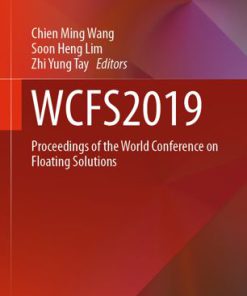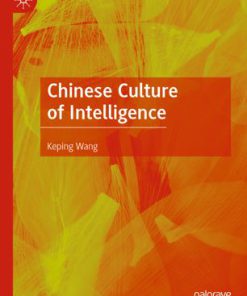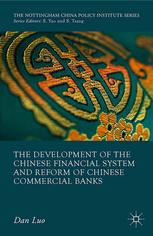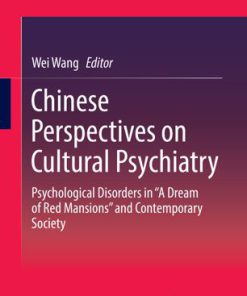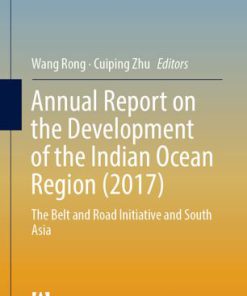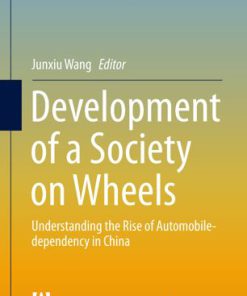A Discussion on Chinese Road of NGOs Reform and Co governance by Society 1st Edition by Ming Wang 9811034046 9789811034046
$50.00 Original price was: $50.00.$25.00Current price is: $25.00.
A Discussion on Chinese Road of NGOs Reform and Co governance by Society 1st Edition by Ming Wang – Ebook PDF Instant Download/DeliveryISBN: 9811034046, 9789811034046
Full download A Discussion on Chinese Road of NGOs Reform and Co governance by Society 1st Edition after payment.
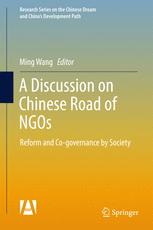
Product details:
ISBN-10 : 9811034046
ISBN-13 : 9789811034046
Author: Ming Wang
This book reflects the author’s views on NGO development in China and includes recent papers, reviews, and policy suggestions he has written. This collection introduces the current state of research on NGOs and their development in China to an English-speaking audience, allowing them to understand China’s social reforms, which center on NGOs.
A Discussion on Chinese Road of NGOs Reform and Co governance by Society 1st table of contents:
1 An Analysis of “New Social Policies” and the Realization Path
1 Conceptualization and Formulation of New Social Policies
2 Connotations of New Social Policies: Three Strategies
2.1 The First Strategy: NGO System Reform
2.2 The Second Strategy: Reform of Social Service System
2.3 The Third Strategy: Reform of Social Governance System
3 Outlook: Realization Path of New Social Policies
2 An Exposition of China’s New System—A Modern NGO System
1 The Inevitability, Importance and Urgency of Establishing a Modern NGO System
1.1 Inevitability
1.2 Importance
1.3 Urgency
2 Basic Content and Tendency of a Modern NGO System
2.1 Three Basic Premises of NGO Reform in China
2.2 Five Aspects of China’s Modern NGO System
3 Practical Exploration and Institutional Innovation in Co-governance by Multiple Subjects
1 Social Co-governance: Practical Exploration in Co-governance by Multiple Subjects
1.1 Inevitability of Multi-Subject Co-governance
1.2 Practical Exploration in Multi-Subject Co-governance
2 Social Co-governance: Institutional Innovation in Co-governance by Multiple Subjects
2.1 Subject of Multi-Subject Co-governance
2.2 A Multi-Subject Co-governance System
2.3 Mechanism for Multi-Subject Co-governance
2.4 Institutional Guarantee for Multi-Subject Co-governance
2.5 Results of Multi-Subject Co-governance
3 Conclusion
4 Incremental Co-governance: Investigation of Hangzhou Experience of Driving Reform Through Innovati
1 Social Co-governance and Predicament for Its Realization
2 Growing Point of Social Co-governance in Hangzhou
2.1 Expanding New Fields for Social Management
2.2 Cultivating New Social Subjects
2.3 Linking Structure of Innovative Subjects
3 Operating Mechanism of Social Co-governance in Hangzhou
3.1 Extracting Value and Concept, and Forming Common Vision and Mission
3.2 Taking Initiatives to Cut Powers and Transfer Functions, Creating Space for Sharing and Interact
3.3 Eliminating Departmental Barrier and Exploring Universal Evaluation Mechanism
4 Incremental Innovation Driving Stock Innovation
4.1 Demonstration Effect
4.2 Furnace Effect
4.3 Reverse-Pressurizing Effect
5 Successful Factors for Incremental Co-governance
6 Conclusions and Discussions
5 Transfer of Governing Power: Wenzhou Experience in Approach to Realizing Multi-subject Co-governan
1 Origin of Theories on Co-governance and Difference Between China and Western Countries
2 The Origin of and Practical Innovation for Multi-subject Co-governance in Wenzhou
2.1 Origin of Multi-subject Co-governance
2.2 Practical Innovation for Multi-subject Co-governance
3 “Transfer of Governing Powers”: Approach to Realizing Multi-subject Co-governance
3.1 Implication of “Transfer of Governing Powers”
3.2 Mechanism for “Transfer of Governing Powers”
4 Behind Choice of Approach: Joint Action by the Government and the Society
4.1 Proactive Reform and Innovation by the Government
4.2 Promotion by Non-governmental Sectors
5 Thinking and Outlook
Commentaries
6 On “Social Management Innovations”
1 Social Management Innovations to Start with Party and Government Institutional Reform
2 The CPC Represents Interests of the Whole People
3 Allow the Society to Get Developed
4 The Advance of State Sector and Retreat of Private Sector in Social Field Is not a Big Deal
5 Give Space to Unregistered Organizations
7 Modernization of the State: Let NGOs Become Real Subjects of Social Governance
1 Introduction
8 On Mechanisms for Promoting Social Structural Reform
9 Separation of Government Administration and NGO Management: Key to Deepening Innovations in Social
10 Comprehensively Deepening Reform and Stepping up Efforts to Form a Modern NGO System
11 On Government Purchasing Services
12 On Hangzhou: “We” Is a Kind of Ideological Emancipation and Social Reconstruction
13 On NGOs in Wenzhou and Social Innovation
1 Wenzhou Spirit
2 Characteristics of Wenzhou
3 Institutional Advantage
4 Opportunities and Challenges
Suggestions and Recommendations
14 Recommendations on Enactment of Basic Laws Concerning NGOs
15 Policy Recommendations on Construction of Professional Careers for NGO-Related Talents
1 First, Establish a Sound Professional System for NGO-Related Talents
2 Second, Establish Professional Titles for NGO-Related Professional Personnel
3 Third, Improve the Evaluation Mechanism for NGO-Related Talents
4 Fourth, Improve the System Guarantee for NGO-Related Talents
16 Policy Recommendations on Construction of NGO Talent Cultivation System
17 Policy Recommendations on Promotion of NGOs’ Participation in Global Governance
18 NGO Reform: Recommendations on Deepening Reform of Social Welfare Enterprises
19 NGO Innovations: Conceptions and Recommendations on Bank of Public Interests
20 Policy Recommendations on Encouraging Development of Social Enterprises
21 Recommendations on Deepening Cooperation Between Mainland China, Hong Kong, Macao and Taiwa
People also search for A Discussion on Chinese Road of NGOs Reform and Co governance by Society 1st:
the road to confrontation
china and ngos
china at a crossroads
ngos in china and europe comparisons and contrasts
china organization reform
Tags: Discussion, Chinese Road, NGOs Reform, Society, Ming Wang
You may also like…
Engineering - Industrial Engineering & Materials Science
Politics & Philosophy - Anthropology
Chinese Culture of Intelligence Keping Wang 9811331731 9789811331732
Computers - Networking
Business & Economics
Politics & Philosophy
Public Value Management, Governance and Reform in Britain John Connolly
Politics & Philosophy
Politics & Philosophy




